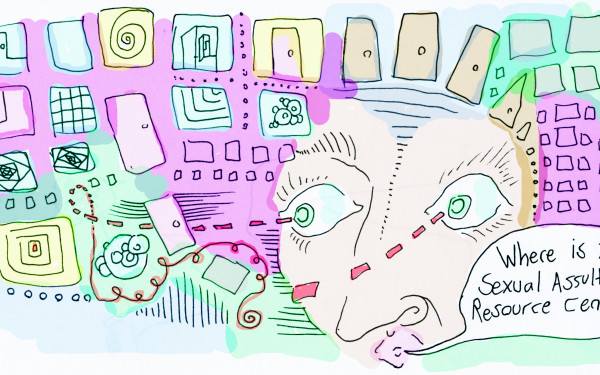Editorial: Concordia’s Lack of Responsibility and Accountability is Insulting
Does Concordia really care about its students?
Over the last two years, three women, with the help of Centre for Research-Action on Race Relations, have brought their separate cases to the Quebec Human Rights Commission. They have gone public with the case in the last two weeks. They say that Concordia mishandled their sexual harassment and violence allegations, and two of the women are seeking a total of $120,000 in damages from the school.
In the same week, Concordia received a grade of D- in an action plan developed by 14 Canadian Universities called Our Turn. Our Turn studied the universities’ plans on sexual violence and how survivor-centric they were.
Adding insult to injury, this week the university and a security firm associated with Concordia was asked to pay a former student $33,000 in damages after she was allegedly socially and racially profiled in 2013.
In all of these situations, the university is denying responsibility, by claiming that these cases do not reflect what they’ve been doing in the past few years.
Chantal Lapointe was making her way to Concordia’s Webster Library when she was asked by a Concordia security guard to show her ID. The security guard also demanded to know where Lapointe was going.
At the time, Lapointe was not carrying ID, but instead was able to show her name and address using a piece of mail. After asking why she was being asked for ID, the Concordia security guard started to take pictures of her. Shortly after, they called the police. She was soon asked to leave Concordia.
Lapointe was carrying several bags at the time, a factor that led CRARR and the Human Rights Commission to believe that she was socially profiled. In other words, she was profiled based on her perceived social class. She is not, nor has she ever been, homeless.
The report filed by the security guard at the time also described Lapointe as “Mrs. Voodo,” and claimed that Lapointe threatened to cast spells. This reasonably led the commission to say she was racially profiled as well.
Concordia University has a policy that allows security guards to ask students for their ID cards at any point, which means that students and staff must carry their ID cards at all times. The policy also states that the security guards have the right to deny access to the university to people who fail to produce their cards upon request.
CRARR, who is helping Lapointe with her case, says that this policy allows for social profiling, since homeless people often don’t carry ID. This policy should be changed.
According to Fo Niemi, the executive director of CRARR, in the three cases of sexual violence that the university is being held accountable for, it very obviously tried “to sweep things under the carpet.” In the 2015-2016 academic year, the Concordia Office of Rights and Responsibilities received 33 reports of sexual harassment, four more reports than the year before.
In the immediate term, Concordia should accept responsibility for their actions, and lack thereof, and should pay back the damages that were asked of them. Denying their actions is an outright slap in the face to the victims in these situations.
In the long term, an accountability process should be enforced. Staff and faculty should also undergo mandatory annual training on how to deal with issues of social profiling, racial profiling, and sexual violence. The school’s administration needs to step up and cooperate in situations of sexual assault and harassment allegations.





_600_375_90_s_c1.jpg)
_600_375_90_s_c1.jpg)
